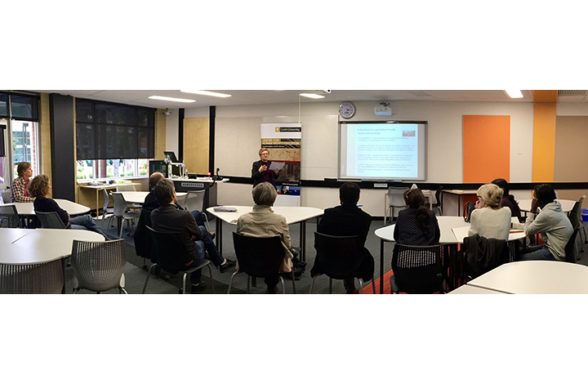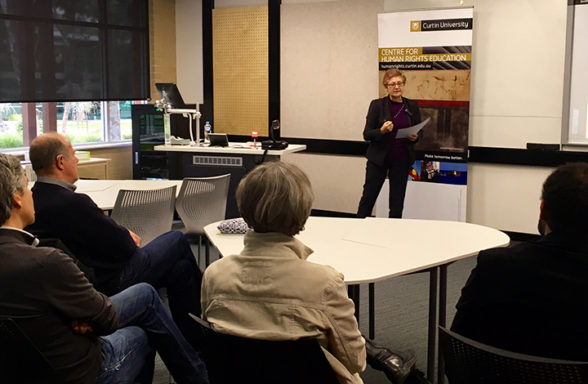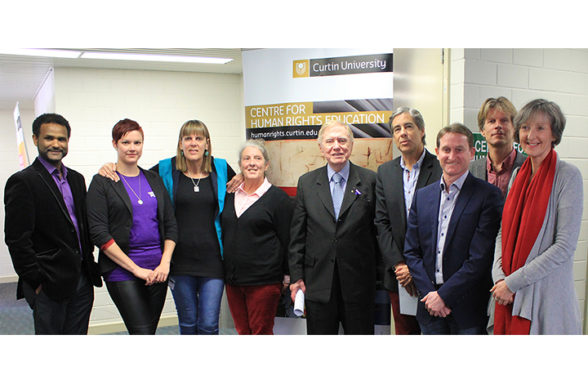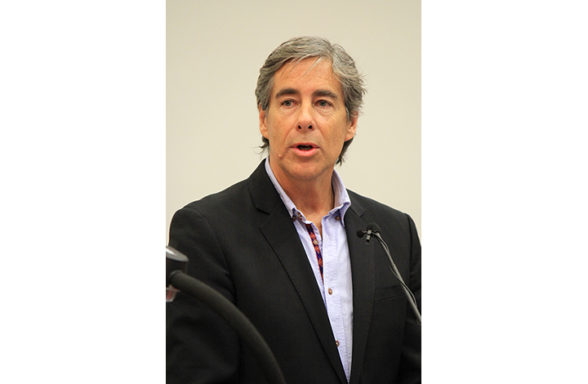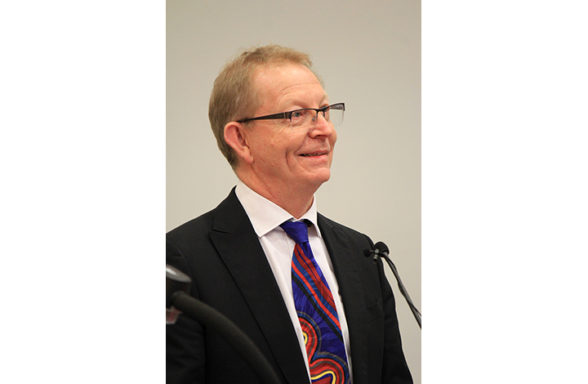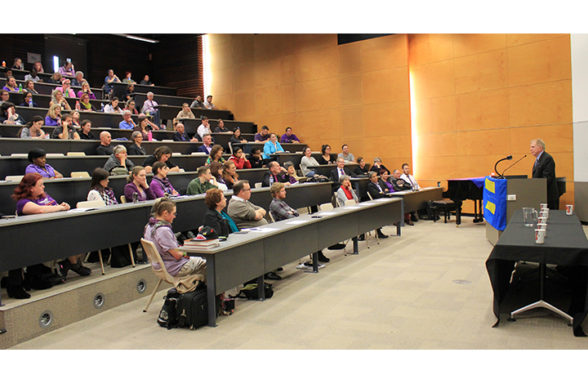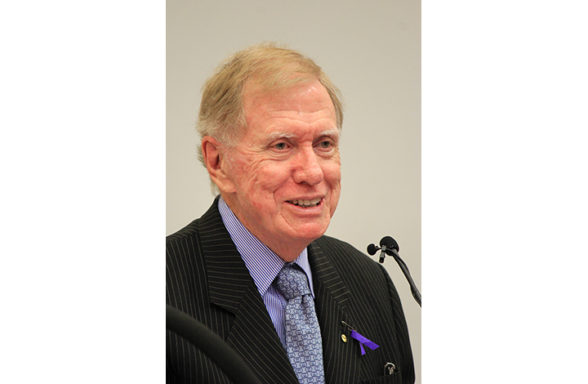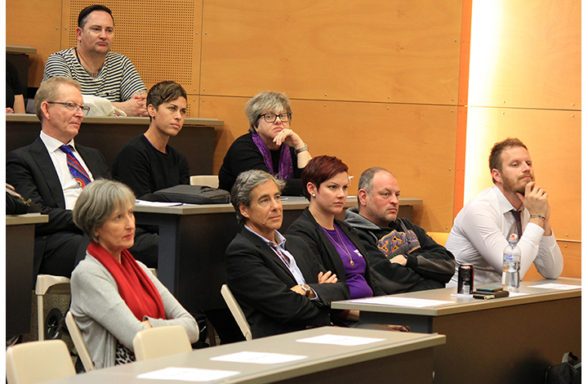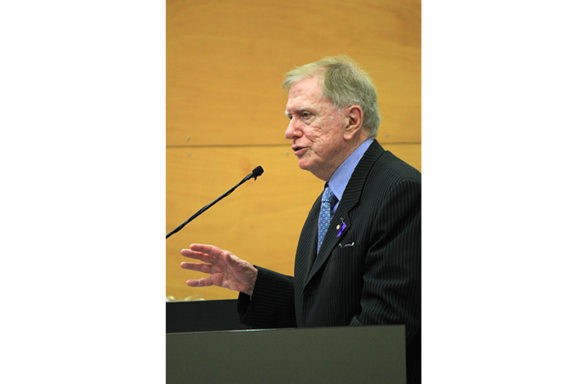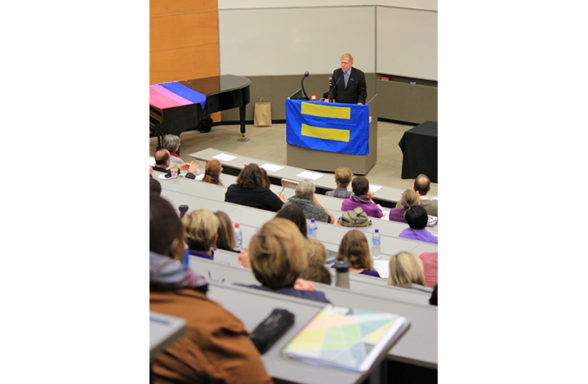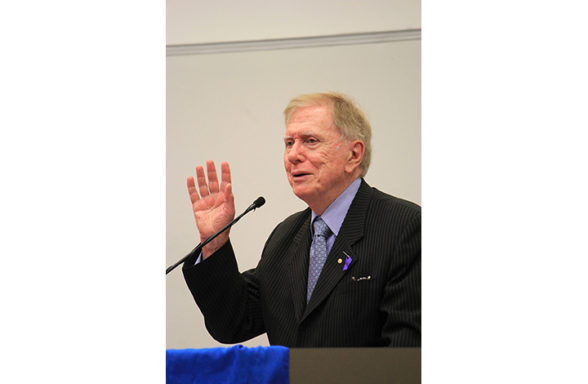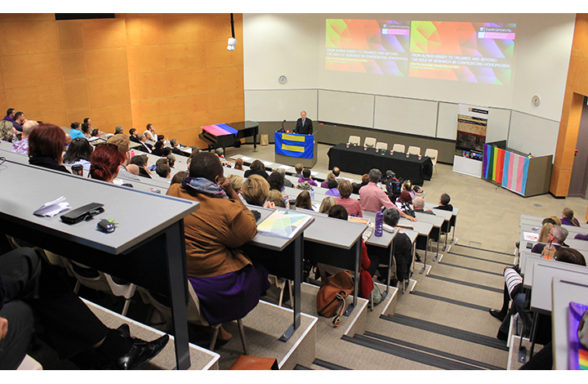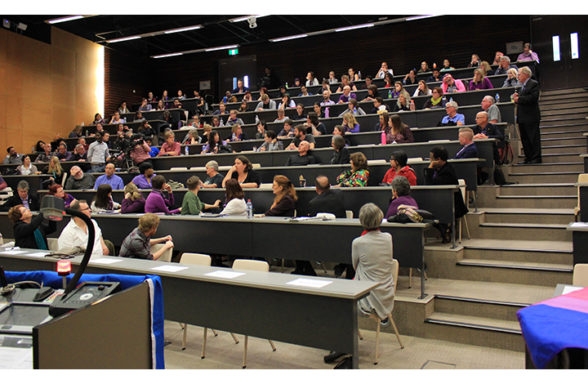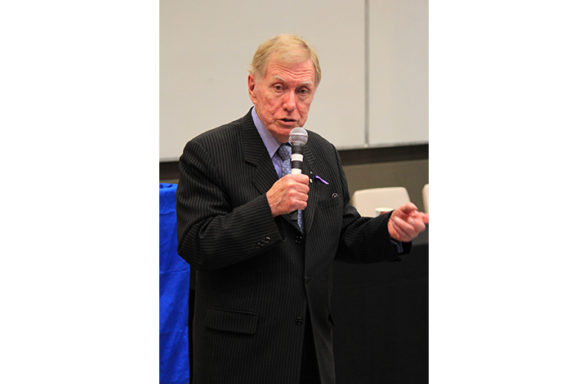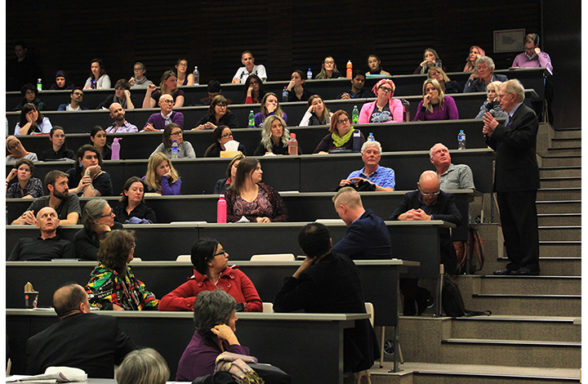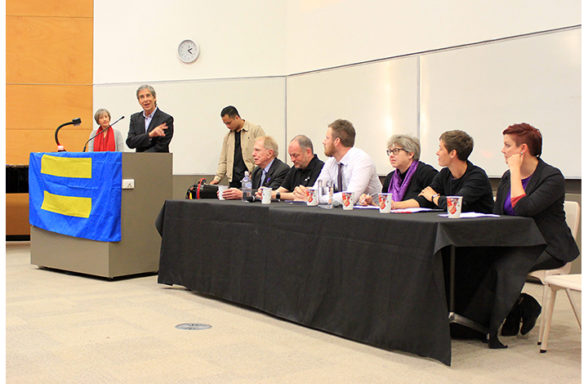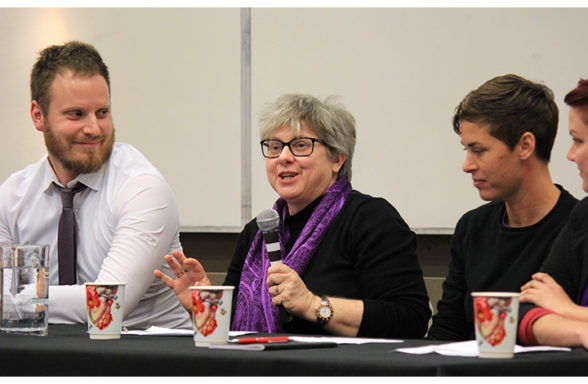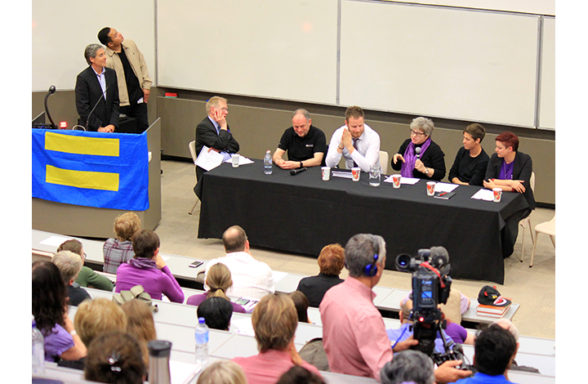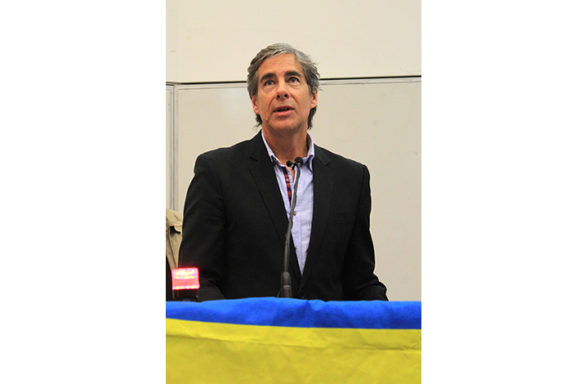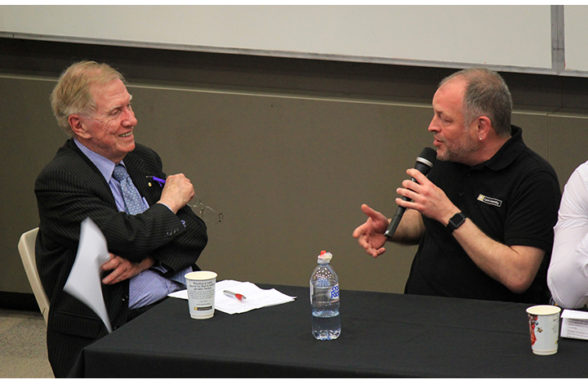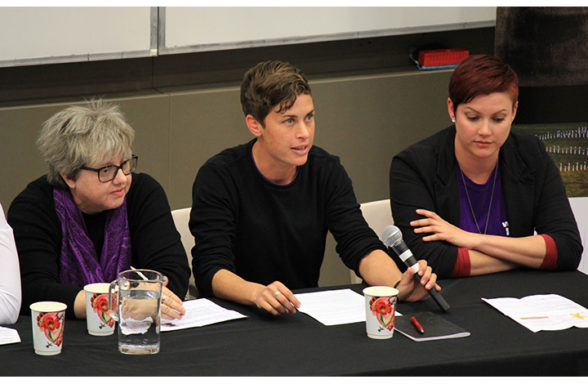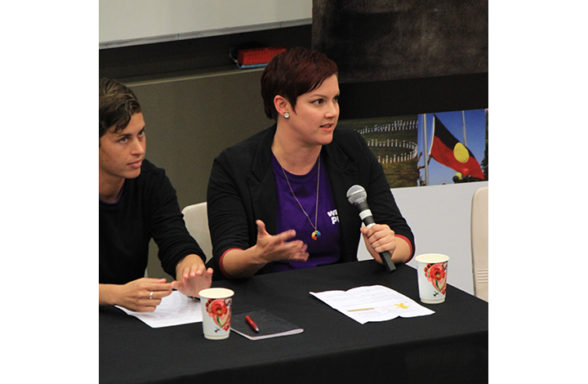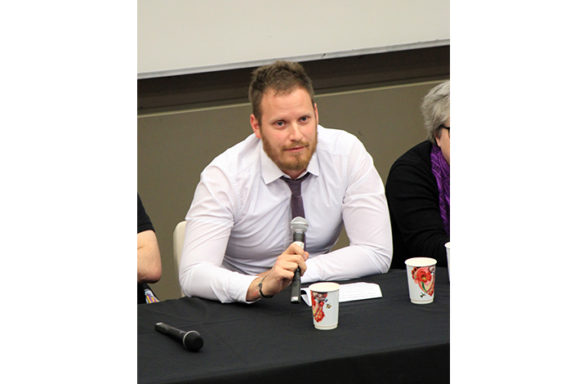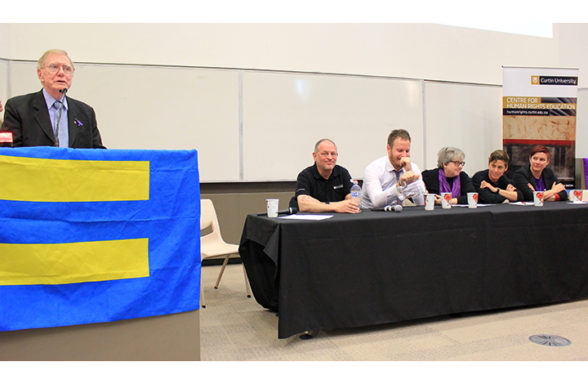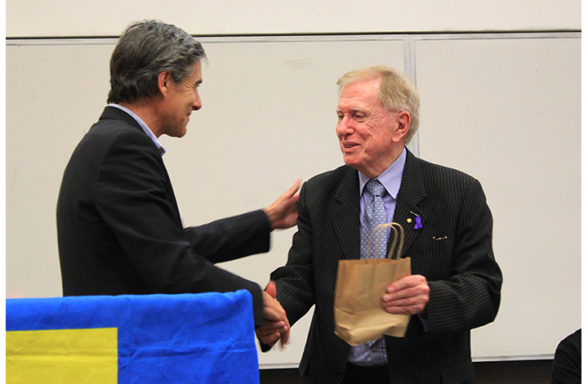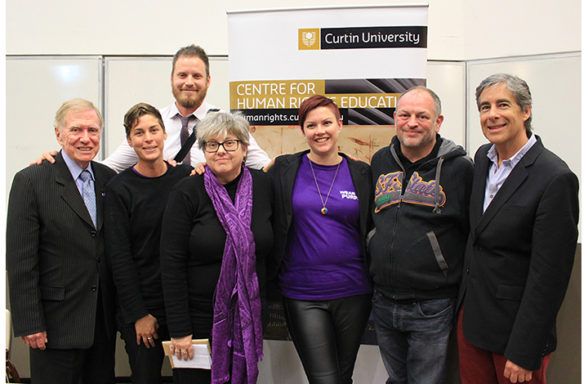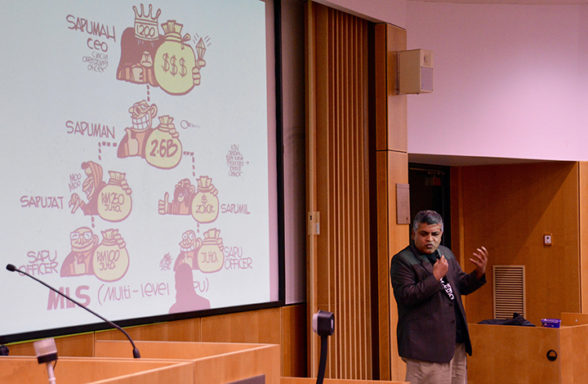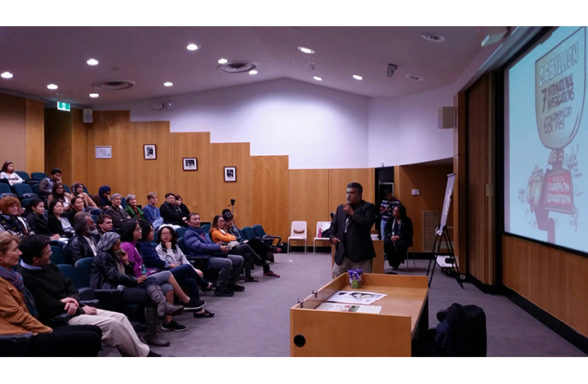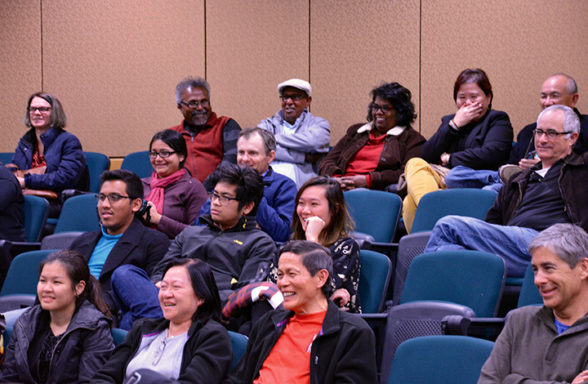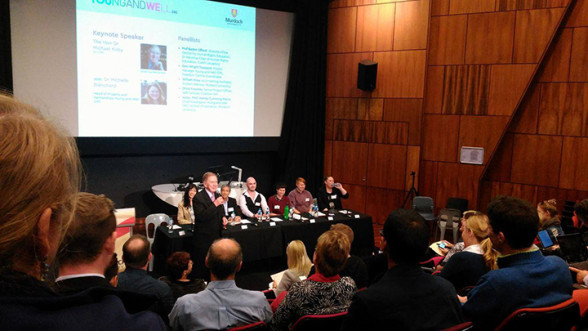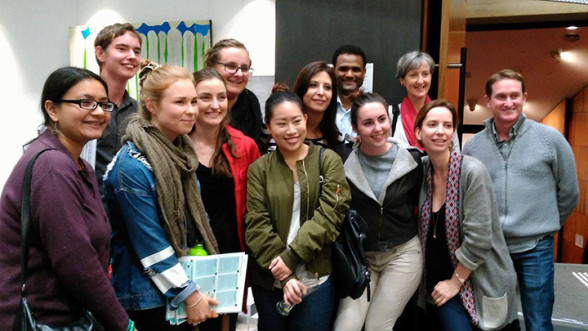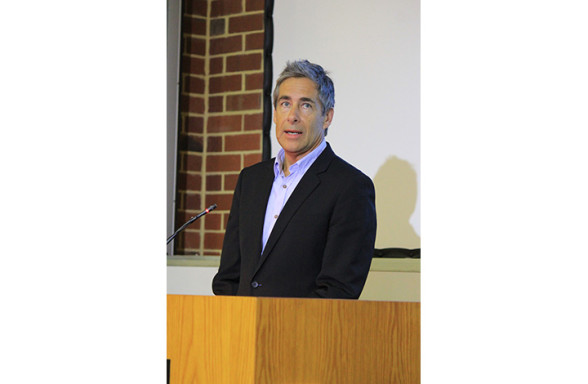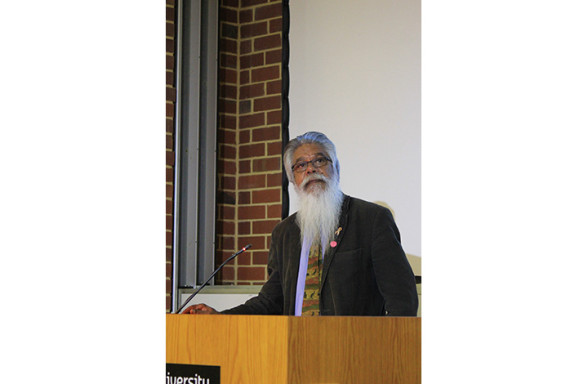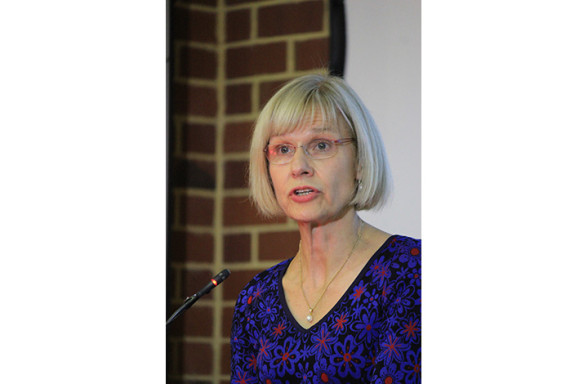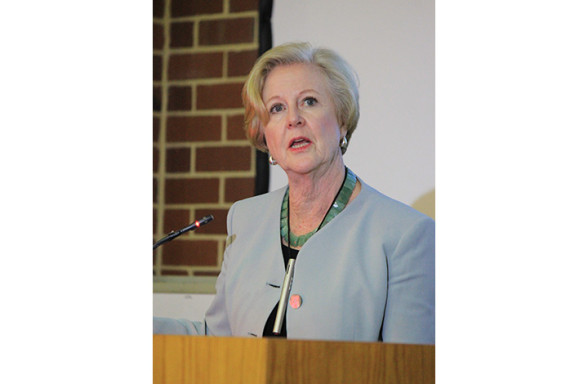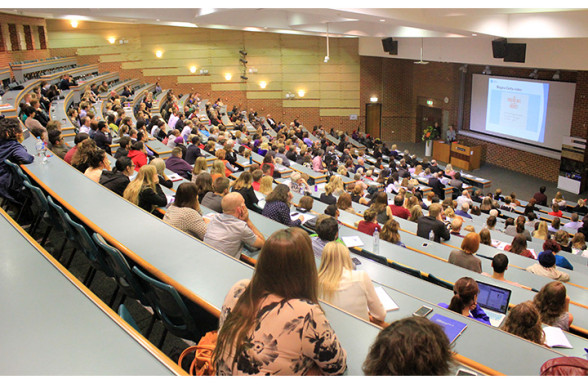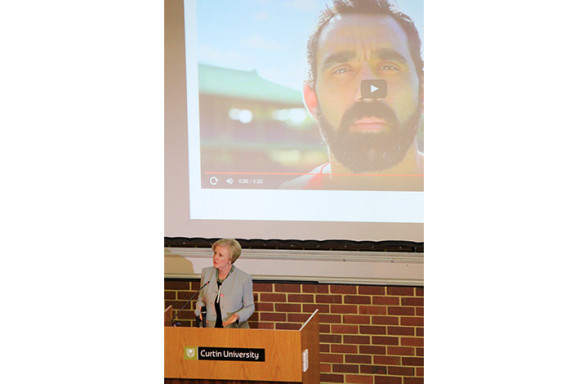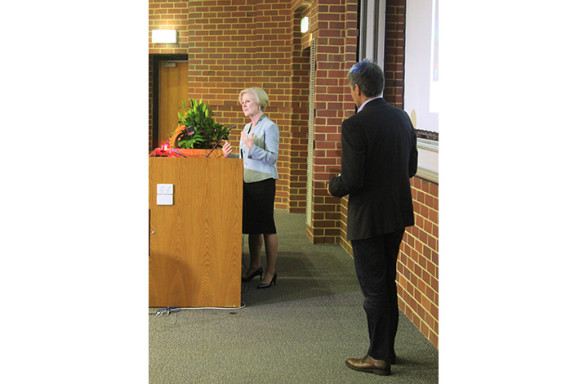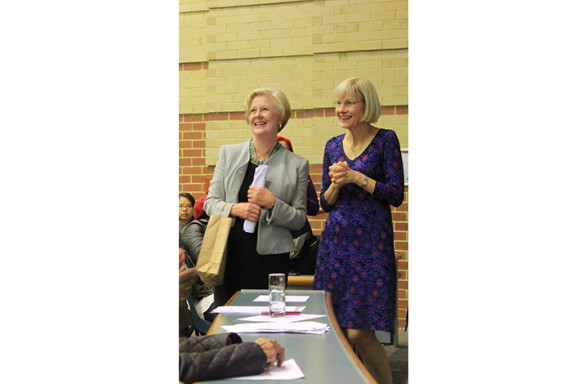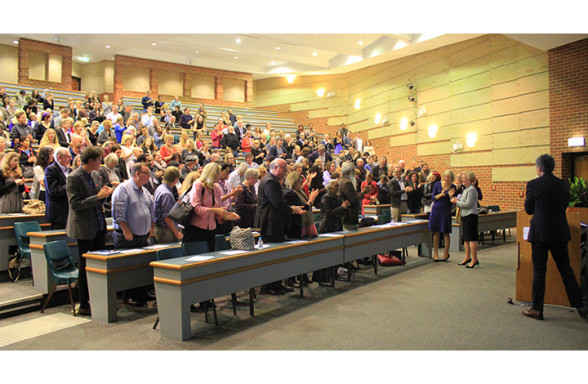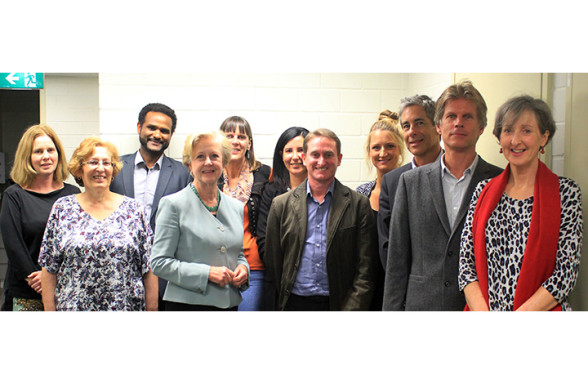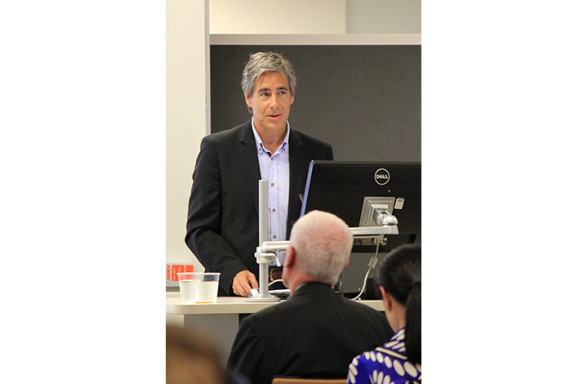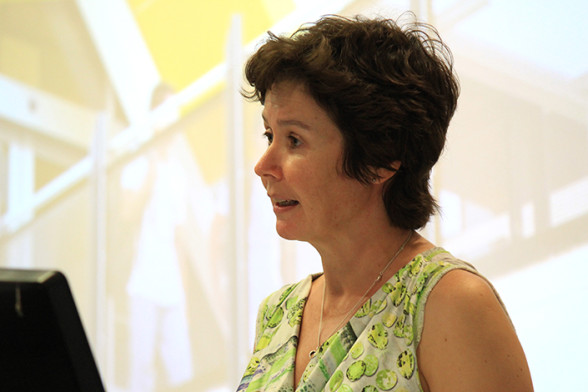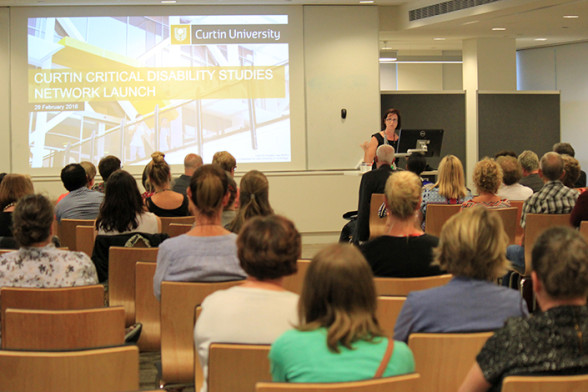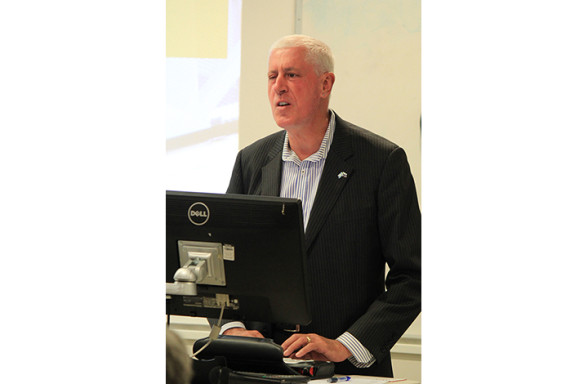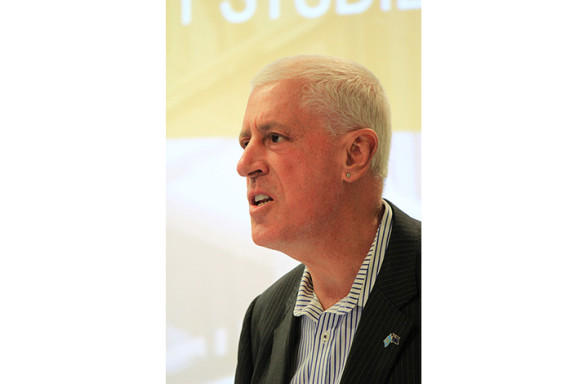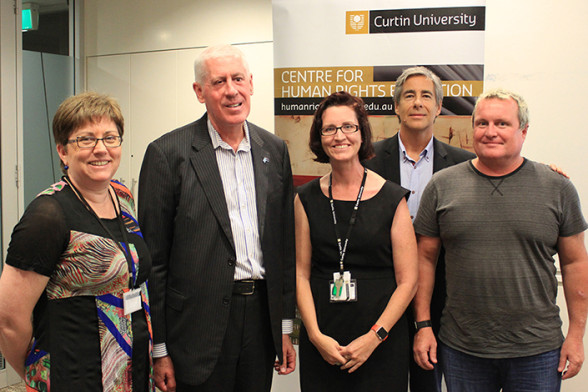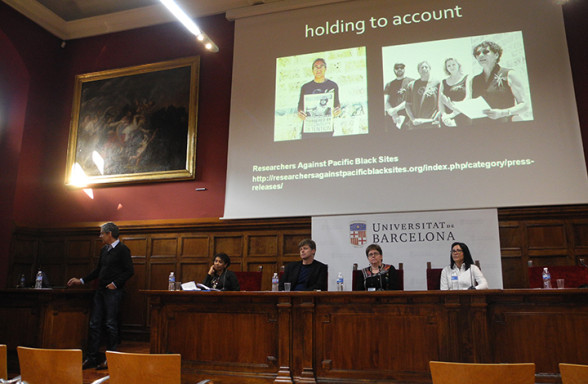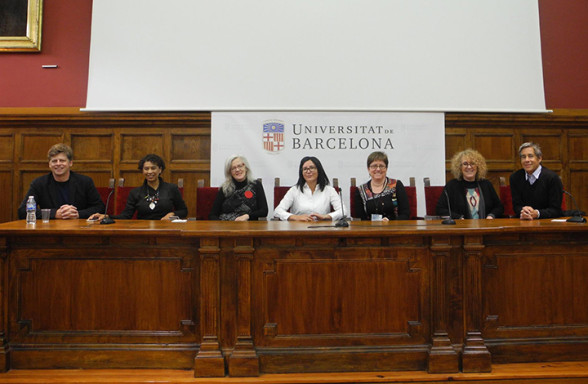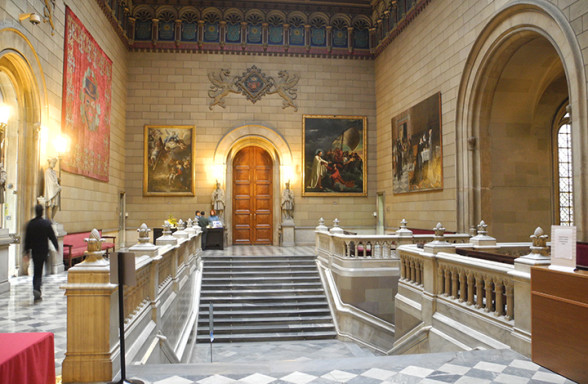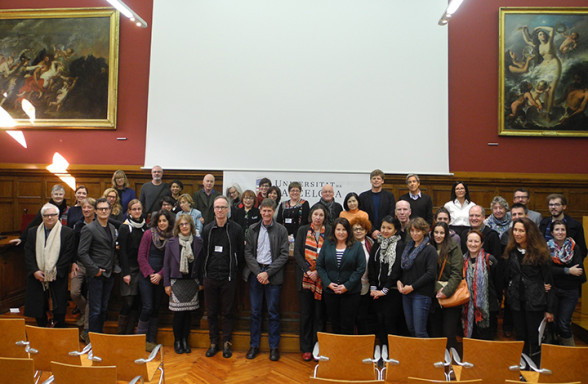2016
December 2016
Post date – 3 April 2017
Human Rights Day 2016: The Moon Above Our Heads
For Human Rights Day 2016, Yirga Gelaw Woldeyes, Mary Ann Kenny, Baden Offord, John Ryan and Yasue Arimitsu shared the stories and books that have influenced and impacted upon their enduring human rights work. The afternoon held at the Centre for Stories in Northbridge, was a celebration of courage in adversity, tolerance and understanding, and above all else—our common humanity.
For more information, see the Centre for Stories summary with photos here.
International Australian Studies Association (InASA) Conference 2016
More than 300 delegates from over 30 countries attended the International Australian Studies Association (InASA) Conference, held in Fremantle, Western Australia from 7 – 9 December 2016. The Conference was hosted by the Centre for Human Rights Education, Australia-Asia-Pacific Institute, the School of Media, Culture and Creative Arts, and the Centre for Aboriginal Studies, Curtin University.
Under the theme of ‘Re-imagining Australia: Encounter, Recognition, Responsibility,’ this successful conference considered re-imagining Australia in a number of diverse ways: the intensification of overlapping, interpenetrating and mixing of cultures and peoples in everyday life in Australia – and how its public culture has become increasingly re-imagined through intense conversations and inter-epistemic dialogue. The conference showcased contemporary research and creativity in understanding Australia through interdisciplinary and multidisciplinary approaches.
Highlights included keynote speakers: Randa Adbel-Fattah, Tony Birch, Anna Haebich, Ariel Heryanto, Suvendrini Perera and Kim Scott. There was a special ‘pop-up’ plenary panel giving attention to the “Change of Date” of Australia Day initiated by Fremantle City Council and included talks by Robert Eggington, Nyoongah Elder, and Executive Officer, Dumbartung Aboriginal Corporation and other members of the community.
There were a number of Plenary and Spotlight Panels including ‘“Anti-Shelter” Imaging and Imagining Australia’s Pacific Black Sites’ and ‘Kimberley Cultural Renewal: Unsettling the Dynamic: ReImagining the Future’ which included members from the Marrugeku Dance Theatre, based in Broome.
The conference was convened by Professor Baden Offord, Director, Centre for Human Rights Education and opened by Curtin University’s Vice Chancellor, Professor Deborah Terry. The conference was held at Notre Dame University Australia, at Fremantle campus, using the excellent facilities of the Tannock Hall of Education and the St John of God Hall. The Sundowner function as well as lunch, morning and afternoon teas were provided in the Prindiville Hall and Malloy Courtyard.
We acknowledge that the conference was held on the traditional lands of the Nyungar people.
Further information can be found on our Past Events pages.
You can see photos by day on our Photo galleries page. (Photographs by Christopher Macfarlane, Chris Lewis and Gaylene Galardi)
Post date – 14 April 2017
From Surviving to Thriving: Work and Economic Security for Refugees and People Seeking Asylum
On the 7th of December 2016, Dr Caroline Fleay delivered a presentation on ‘Unsettling Assumptions about People Seeking Asylum and their Access to Employment‘ at the From Surviving to Thriving forum at the University of Melbourne. The forum brought together key researchers, refugee support agencies and people from a refugee background to share knowledge and experiences about accessing employment.
Caroline explored some of the employment experiences of people seeking asylum who arrived to Australia by boat since 2010 to highlight strategies they have adopted to access employment. Her presentation also sought to unsettle claims that people who arrived by boat at this time continue to have limited employment prospects.
Details about the forum, and Caroline’s presentation, can be found here.
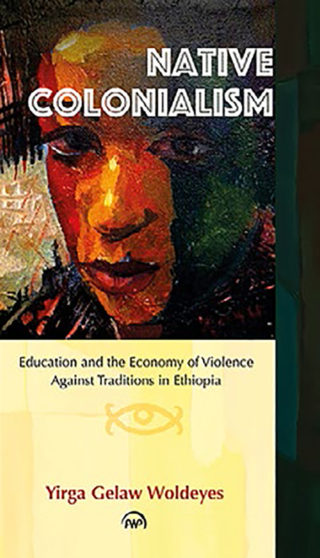
Post date – 31 March 2017
Native Colonialism: Education and the Economy of Violence Against Traditions in Ethiopia
The Centre for Human Rights Education is pleased to announce the publication of a new book, Native Colonialism, by CHRE team member, Dr Yirga Gelaw Woldeyes. The book was launched in Washington D.C. at the Sankofa Cafe on 2 December 2016 as part of the 59th Annual Meeting of the African Studies Association, December 1 – 3, 2016. Professor Ephraim Isaac from Princeton University opened the launch.
Congratulations to Yirga on this new publication.
For those who speak Amharic, you can watch Yirga reading a poem at the book launch on Youtube here.
November 2016
Post date – 31 March 2017
Refugee Experiences: The Right to Thrive, Not Just Survive
On the 10th of November 2016, the Centre for Human Rights Education hosted a panel discussion with people seeking asylum.
The panel of four people who all had lived the experience of seeking asylum in Australia, explored the challenges asylum seekers and refugees face in accessing what is needed to thrive and not just survive. These challenges include policies that prevent people seeking asylum, who arrive by boat, from accessing education.
Dr Caroline Fleay’s presentation at the seminar was on ‘Setting the political scene’.
The event was well attended by invited guests.
September 2016
Post date – 30 September 2016
LGBTIQ Asylum Seekers in Australia – an Analysis of Recent Case Law
On 15 September 2016, the Centre for Human Rights Education (CHRE) hosted PhD Candidate from the University of New South Wales (UNSW), Josh Pallas, who gave a presentation titled, ‘LGBTIQ Asylum Seekers in Australia – an Analysis of Recent Case Law’. The event was well attended by CHRE staff, associates and students at Curtin University.
After an introduction to the day by Professor Baden Offord, Director at the CHRE, Josh’s presentation outlined the Australian legal system’s approach to determining LGBTIQ asylum applications from a recent historical perspective, and details a number of cases that demonstrate the prevailing discriminatory attitudes of the Australian Courts. He provided an analysis of the treatment of LGBTIQ Asylum Seekers under Australian law through a queer theoretical lens, and concluded that the current approach is unacceptable.
The floor was opened for questions from the audience after the presentation.
Josh Pallas is a PhD Candidate in international law at UNSW Law Faculty. He is also a Sessional Academic at the University of Wollongong in both Law and Politics and International Studies. Josh volunteers with the Inner City Legal Centre in Kings Cross which is the NSW specialist LGBTIQ community legal centre.
If you would like to watch the video of Josh’s presentation, you can stream the iLecture online.
(Photograph by Misty Farquhar)

Post date – 30 September 2016
The Value of Human Rights Education at University
On 9 September 2016, the Centre for Human Rights Education (CHRE) hosted Associate Professor Nina Burridge who gave a presentation titled, ‘The Value of Human Rights Education at University’. The event was attended by CHRE staff, associates and students in the Centre for Aboriginal Studies at Curtin University.
After an introduction to the day by Professor Baden Offord, Director at the CHRE, Associate Professor Burridge’s presentation focused on how as academics, in their own distinct subjects, courses and faculties, encompass the mission of producing active global citizens for the common good. While this process obviously begins in the school system, the tertiary sector cannot neglect its responsibility for enabling young people to discuss and think critically about global issues, and for providing experiential opportunities for tertiary students to live and operate in an increasingly globalised world. Tertiary education must combine the goal of producing ‘job ready’ graduates with the more complex goal of ensuring they are able to use their new found knowledge and skills to work for solutions to complex global problems that benefit not just the market but society in an equitable and just way.
The floor was opened for questions from the audience after the presentation.
Nina Burridge is an Associate Professor in the School of Education in the Faculty of Arts and Social Sciences at the University of Technology Sydney, Australia. Her main research interests are underpinned by a rights framework encompassing principles of social justice and social inclusion and centre on issues such as cultural diversity, women’s empowerment, Indigenous education and human rights education in the context of a globalised world. In 2012 she received the UTS Social Inclusion Award: For Sustained commitment to improving education and human rights for women in Australia and internationally.
If you would like to watch the video of Nina’s presentation, you can stream the iLecture online.
(Photographs by Gaylene Galardi)
Post date – 7 September 2016
Michael Kirby Visit to Curtin University
The Honourable Michael Kirby AC CMG visited Curtin University on 26 August 2016 to deliver a public lecture to a packed Tim Winton Lecture Theatre on confronting homophobia in his new role as Patron of the Centre for Human Rights Education (CHRE). In the lecture, which was very timely given the recent massacre of 49 LGBTIQ people in Orlando, Florida, the international jurist, educator and former judge explored the crucial role universities play in supporting research to end homophobia and all forms of LGBTIQ phobia and prejudice.
Titled “From Alfred Kinsey to Orlando and Beyond: the role of research in confronting homophobia,” Mr Kirby argued that Dr Kinsey’s research was a game changer in revolutionising conceptions of human sexuality. “Kinsey’s research, and the enquiries and investigations that have followed, have provided the foundation on which is based a more rational approach to human sexual diversity,” Mr Kirby said. “His research has afforded support to law reform to disband the cruel laws against those who identify as LGBTIQ. Although law reforms have occurred broadly in many developed countries, they remain the subject of resistance in developing countries, especially where there are powerful religious elements,” Mr Kirby said.
Mr Kirby said opposition to even voting on a proposed law for same-sex marriage was being stymied by private religious beliefs. “Parliament cannot change the character of marriage under the Australian Constitution as a non-religious and a secular contract between two competent persons recognised by secular law,” he said. “The attempt of some people who hold public offices to exclude others from access to this civil right on the grounds of their sexual orientation or gender identity is discriminatory.”
Professor Baden Offord, Director of CHRE, welcomed Mr Kirby as the new Patron, adding he was the ideal figurehead given his extensive background and passion for human rights for all people. “Mr Kirby will help to raise the profile of the Centre and his leadership and advice will be invaluable in helping the Centre to promote human rights and social justice at local, national and international levels for all people,” he said.
During his visit, Mr Kirby also launched the new Curtin LGBTIQ Collaborative Research Network. Professor Offord, Convener of the Network, and an internationally recognised specialist in human rights and LGBTIQ issues in Southeast Asia, said the initiative aimed to enable, enhance and sustain LGBTIQ research within the university. “The Network brings together Curtin researchers undertaking LGBTIQ research in multi-disciplinary contexts — cultural studies, anthropology, human rights, humanities, sexology, psychology, health sciences — for the first time,” he said. “The Curtin LGBTIQ Collaborative Research Network is a wonderful opportunity for Curtin University, which is a leader in social justice and inclusive education, to showcase its research in the areas of LGBTIQ issues. Many people know that Curtin has been recognised as one of Australia’s top universities for LGBTIQ workplace inclusion but not everyone is aware that there are leading LGBTIQ researchers at Curtin as well who are making a difference to the world,” Professor Offord said.
The panel of researchers presenting included Associate Professor Sam Winter via video, School of Public Health, who is considered a world leader in transgender research. Together with Dr Catriona Davis-McCabe, School of Psychology and Speech Pathology, they have formed the Transgender Research Interest Group at the university.
This was followed by Dr Deborah Hunn, Lecturer in Communication and Cultural Studies, School of Media, Culture and Creative Arts; Dr Christopher Fisher, Senior Lecturer, Health Promotion & Sexology: Professor Baden Offord, Director, Centre for Human Rights Education, Convenor, Curtin LGBTIQ Collaborative Research Network: Presently Baden is working with scholars Professor Paula Gerber (Monash), Associate Professor Anthony Langlois (Flinders) and Dr Cai Wilkinson (Deakin) researching on the human rights of LGBT people in the Asia-Pacific.
Early career researchers were represented by Misty Farquhar, PhD student, Centre for Human Rights Education; Joni Lariat, PhD student, School of Media, Culture and Creative Arts and CHRE; and Matt Roberts, Masters student in Counselling Psychology, School of Psychology and Speech Pathology.
The lecture was recorded and you can find it on our Video page. If you would like to listen to the full night’s proceedings, you can stream the iLecture via this link. You can also watch the video on Youtube.
(Photographs by Gaylene Galardi)
August 2016
Post date – 10 August 2016
Limited resettlement and ongoing uncertainty
In the wake of the Coalition Government’s narrow victory in the first Australian election since the adoption of Operation Sovereign Borders, a special edition of the journal Cosmopolitan Civil Societies, guest edited by Caroline Fleay and Lisa Hartley, focuses its attention on the treatment of people seeking asylum. The edition explores some of the experiences of people both in Australia and Indonesia who are seeking a life of safety, as well as the responses of civil society groups and governments, following the commencement of policies that have vastly reduced the opportunities for refugee resettlement in Australia. The contributions in this special edition document some of the negative impacts of current Australian policies on those seeking safety both in the region and in Australia. They highlight the limited resettlement opportunities and the protracted uncertainty facing refugees and asylum seekers. But importantly, they also highlight examples of the agency and resilience of refugee communities. In the wake of the re-election of the Coalition Government in July 2016, greater attention to the experiences of refugees and asylum seekers within and beyond Australia’s borders continues to be urgently needed.
Articles in the special edition include:
Editorial Welcome: Limited Resettlement and Ongoing Uncertainty
Caroline Fleay and Lisa Hartley
Growing Pains: The Asia Pacific Refugee Rights Network at Seven Years
Savitri Taylor
Asylum seekers and refugees in Indonesia: Problems and potentials
Muzafar Ali, Linda Ruth Briskman and Lucy Imogen Fiske
The May 2015 boat crisis: the Rohingya in Aceh
Graham Thom
People Seeking Asylum in Australia and their Access to Employment: Just What Do We Know?
Caroline Fleay, Anita Lumbus and Lisa Hartley
Mental health and legal representation for asylum seekers in the ‘legacy caseload’
Mary Anne Kenny, Nicholas Procter and Carol Grech
The full special edition table of contents can be found on the UTS ePRESS website.
July 2016
Post date – 26 July 2016
The regional impacts of Australian asylum seeker policies: what “stopping the boats” means for people seeking asylum
Caroline Fleay and Lisa Hartley have just released the summary report of a workshop convened in late August 2015 that explored the regional impacts of Australia’s asylum seeker policies. The mantra of both major Australian political parties is that “stopping the boats” has saved the lives of people seeking asylum because they are prevented from reaching Australia by sea. However, this ignores the reality of the lives of many now effectively warehoused in our region because of this policy. To date, relatively little attention has been given to their experiences. While the policies of the country in which they are residing also impact on their experiences, it is clear from researchers, non-government organisations (NGOs) that work in the region, and those who are living the experience themselves, that Australian policies are having disturbing impacts beyond our borders. This was the conclusion of the gathering of academics, NGOs and refugee communities who examined the regional impacts of Australia’s policies in September 2015 in a workshop funded by the Academy of the Social Sciences in Australia and Curtin University’s Australia-Asia-Pacific Institute. Workshop participants focused on people’s experiences in Indonesia, Malaysia and Sri Lanka following the commencement of the Coalition Government’s Operation Sovereign Borders (OSB).
Since late 2013, the Australian Government has funded joint operations with Indonesia, Malaysia and Sri Lanka to disrupt people smuggling activities and increase intelligence operations. It has also turned back boats of asylum seekers, mostly to Indonesia. As a result, OSB has severely limited the arrival of people seeking asylum to Australia by sea at a time when people displaced globally and regionally has increased to the greatest number since World War II. It is also at a time when 86 per cent of people recognised as refugees by the United Nations High Commissioner for Refugees reside in developing countries. In the wake of the Coalition’s victory in the July 2016 federal election, these findings continue to be pressing and require attention. The summary report can be found online here. The full report of the workshop can be found online here.
June 2016
Post date – 23 June 2016
Laughter, the Best Form of Protest
Malaysian cartoonist, Zunar (Zukilfee Anwar Haque), was at Curtin University on Friday, 17 June delivering a public talk about his work. Co-hosted by the Curtin Centre for Human Rights Education and the School of Media, Culture & Creative Arts, the talk that night was the last of Zunar’s 2016 Australian tour. Zunar has awarded the “Courage in Editorial Cartooning Award” by Cartoonists Right Network International and the Human Rights Watch Hellman/Hammett Award in 2011 (and again in 2015) and most recently, the International Press Freedom Award. Yet, he faces 9 charges for sedition in Malaysia and a possible 43 years of imprisonment at home for allegedly seditious tweets.
Revised in 2015 to include electronic means of expression within its scope, Malaysia’s Sedition Act now allows for individuals to be imprisoned up to 20 years for ‘aggravated’ sedition causing bodily harm. Apart from the hefty penalties, what is most concerning is what passes for sedition with the authorities, which in 2014/5 included the act of liking the ‘wrong’ Facebook page and offering your expert (contrary and unwanted) opinion as an academic to reporting opinions expressed but later denied.
In interviews he’s given Zunar describes laughter as the best form of protest and it is definitely so in the face of a system where the freedom of individuals to express dissent peacefully is controlled and curtailed through a paralysing collection of laws. Grim the laughter might be that greets Zunar’s cartoons, but they provide Malaysians with much-needed relief from the socio-political restrictions and frustrations that circumscribe life in Malaysia and importantly, act as a departure point for conversations around prickly topics. His main message that day was simple: make a stand for the right of individuals in Malaysia to speak their mind and step in from the sidelines.
As human rights infringements go, those that take place in Malaysia are deceptively mild. Few deaths occur, charges are made and far too often dismissed in a seemingly endless cycle of court cases. Individuals are sent to prison on what, in Australia, would be considered the most minor of infractions and much pain is suffered by those affected, their families and supporters.
Malaysia has the reputation for being a moderate country and its dissidents are equally restrained. Violence is eschewed though major rallies drawing thousands onto the streets of Malaysia are not. However, and this is a point not sufficiently taken up, the cause for which many activists in Malaysians work – the liberty to speak their mind equably, act and live according to their own lights without being told what and how to think within Malaysian society – is no minor issue. If laughter is the best form of protest let us hope Malaysians may soon have reason to laugh with renewed joy and hope in their nation.
(Text by Susan Leong)
May 2016
Post date – 20 May 2016
Promoting Human Rights in Australian Educational Communities for People of Diverse Genders and Sexualities
In a packed lecture theatre on Monday 16 May 2016, the Centre for Human Rights Education actively supported and engaged with the symposium: “Promoting Human Rights in Educational Communities for People of Diverse Genders and Sexualities” held at Murdoch University. The event was convened and chaired by Associate Professor Wendy Cumming-Potvin of Murdoch University’s School of Education and Chief Investigator at Murdoch of the Young and Well Cooperative Research Centre and was attended by a number of CHRE staff and students.
Following a keynote lecture by The Hon. Michael Kirby, CHRE Director Professor Baden Offord joined an expert panel, which included The Hon. Michael Kirby; Dani Wright Toussaint (Coordinator: Freedom Centre); Olivia Knowles (Senior Project Officer, Safe Schools Coalition, WA Chapter); Will Knox (MU Ally Network & Student Advisor, School of Education, MU); Dr Wendy Cumming-Potvin (Assoc. Prof School of Education, MU); and Dr Michelle Blanchard, (Head of Projects and Partnerships Young and Well CRC).
The panel discussed lesbian, gay, bisexual, transgender, queer or questioning and intersex (LGBTQI) issues and challenges in schools and universities. The panel received questions from the audience about debates in Australia concerning marriage equality, the work of the Safe Schools Coalition as well as the continuing lack of human rights for people of diverse genders and sexualities.
This very successful event was supported and endorsed by: Curtin University’s Centre for Human Rights Education, The University of Western Australia, Curtin University, Equal Opportunity Commission, Freedom Centre, Safe Schools Coalition, State Schools Teachers’ Union of WA and RMIT University.
Post date – 13 May 2016
Inaugural Annual Curtin University Human Rights Lecture a resounding success
On the 12th of May 2016, the President of the Australian Human Rights Commission, Professor Gillian Triggs presented the Inaugural Annual Curtin University Human Rights Lecture to over 360 people in the Elizabeth Jolley Lecture Theatre at Curtin University.
The Inaugural Annual Curtin University Human Rights Lecture is an important new initiative of the Centre for Human Rights Education (CHRE) and it was excellent to have Professor Triggs as the first speaker for this annual lecture.
Professor Baden Offord, Director of the CHRE and Dr Haruhisa Handa Chair of Human Rights Education, was the Master of Ceremonies for the evening, first introducing Associate Professor Edward Wilkes who gave a Welcome to Country to open the event. Professor Deborah Terry, Vice Chancellor of Curtin University then officially welcomed guests and introduced the keynote speaker, Professor Gillian Triggs.
Professor Triggs examined the current state of play of human rights in Australia. She highlighted that Australia enjoys limited constitutional or legislative protections of fundamental rights and freedoms, instead adopting a multi-faceted approach to human rights protection. In this state of play, education has a key role to play in a reimagining of an Australia where human rights are fully realised and enjoyed by all. It is an indispensable means of realising other human rights.
Professor Triggs discussed the power of education in this reimagining. She explored the approaches to human rights education taken by the Australian Human Rights Commission, including its work linked to the national school curriculum, in its public campaigns and in its work with the business sector.
After a short question and answer session, Baden concluded the evening with thanks to the speaker and presentation of a gift by Professor Terry. Professor Triggs was then given a standing ovation.
The Centre would like to thank Professor Triggs for her time in delivering the Inaugural Human Rights Lecture at Curtin.
The lecture was recorded and you can find it on our Video page. If you would like to listen to the full night’s proceedings, you can stream the iLecture via this link. You can also watch the video on Youtube.
(Photographs by Gaylene Galardi)
Post date – 16 May 2016
Seminar on “The Creation of native colonialism in Ethiopia” at the University of Western Australia
On Tuesday the 26th of April 2016, Dr Yirga Gelaw Woldeyes gave a seminar titled “The creation of Native Colonisation in Ethiopia” at the University of Western Australia (UWA). The seminar was organised by the Political Science and International Relations and UWA Africa Research Cluster. In his presentation, he noted that violence exists at the heart of every human suffering and there are various types of violence. These include structural violence, cultural violence, physical violence and epistemic violence. Of these and many other typologies of violence, there has been less emphasis on epistemic violence –the forceful integration of diverse cultures and epistemologies into the logic of one dominant tradition. Based on the Ethiopian traditional and modernist experiences, Yirga discussed epistemic violence as the main reason for the failure of education to transform local life in Ethiopia. Moreover, he drew lessons from the Ethiopian experience and argued that epistemic violence diminishes humanity’s precious asset: diversity.
Attendees were from the UWA’s Political Science and International Relations Department, and Africa Research Cluster, as well as Curtin University participants, who raised questions and reflected on similar experiences from other countries, emphasising the relevance of knowledge diversity and cognitive justice to the re-imagining of human rights.
March 2016
Post date – 11 March 2016
Curtin Critical Disability Studies Research Network launch, 29 February 2016
The Curtin Critical Disability Studies Research Network (CCDSN) was officially launched on 29 February 2016 with a keynote presentation on Re-imagining Australia by Graeme Innes AM, LLB, FAICD, Chair of the Attitude Foundation and former Australian Disability Discrimination Commissioner. Graeme gave an inspiring talk about the changes in the lives of people with disabilities over the past ten years and his vision for the future.
Professor Baden Offord officiated the evening, with a Welcome to Country by Elder in Residence, Associate Professor Simon Forrest. Associate Professor Michele Willson, Head of the School of Media, Culture and Creative Arts (MCCA) at Curtin gave an official welcome to the guests and Dr Katie Ellis introduced the background to and aims of the Research Network.
The Curtin Critical Disability Studies Research Network aims to develop relationships and support for researchers in the critical disability studies field both within and outside Curtin University. Members include Curtin staff and HDRs, people with disabilities and advocacy organisations. Network membership is free and open to anyone with research interests in critical disability studies. The Network is coordinated by Katie Ellis builds on the work of Katie Ellis, Mike Kent and Rachel Robertson in the Curtin School of Media, Culture and Creative Arts and Baden Offord in CHRE.
The launch was funded by the Faculty of Humanities and MCCA. Our thanks to Katie Ellis in MCCA, Gaylene Galardi in CHRE, and Corporate Events for organising this event.
(Text by Rachel Robertson and Gaylene Galardi, photographs by Gaylene Galardi)
February 2016
Post date – 19 February 2016
‘In Between, Go Between: Borders of Belonging,’ International Conference, Barcelona, 17-22 January 2016
The Centre for Human Rights Education co-convened the international conference ‘In Between, Go Between: Borders of Belonging,’ in Barcelona from 17-22 January 2016. The event was convened by Professor Baden Offord, CHRE Director, together with Emeritus Professor Susan Ballyn, Director at the Centre for Australian Studies at The University Barcelona, Dr Rob Garbutt of the Centre for Peace and Social Justice, Southern Cross University, and Dr Mitchell Rolls, Director, Centre Colonialism and its Aftermath, University of Tasmania.
The conference, with its interdisciplinary and intercultural emphasis, brought scholars, writers, artists, cultural theorists, historians and thinkers from across the world into dialogue and conversation.
CHRE academics, Professor Offord and Dr Elfie Shiosaki together with CHRE Adjunct Professor Linda Briskman, joined Professor Suvendrini Perera, John Curtin Distinguished Professor Anna Haebich, Dr Thor Kerr and Dr Rachel Robertson, from the School of Media, Culture and Creative Arts at Curtin in presenting two featured Curtin Plenary Panels on the topic of ‘Cultural Struggle in Australia.’
Professor Offord’s presentation, titled ‘“Of cul‐de‐sac champions, civilisation, hidden curriculum and Aussie Rules,” discussed the role of the human rights scholar and intellectual as someone – as a go-between – who subjected structures of power, knowledge and everyday life to critical scrutiny.
He argued that cultural struggle in Australia, for example, required holding the government and society itself to account for the way that refugees and asylum seekers – the in-between – were treated. He referred to the recent action of Researchers Against Pacific Black Sites as a valuable example of how scholarship and activism can work together to tell the stories of those who suffer from the absence of safety and protection in creative and compelling ways.
Dr Shiosaki’s talk was on emerging transnational narratives of Indigenous political autonomy in Australia. She argued that recognising and accounting for early political activism by Noongar people (1900-1930s) contributed to these emerging narratives, by amplifying significant Western Australian voices. She concluded that reclaiming these voices negotiated borders of belonging in Australian history by honouring Indigenous transnational agencies, networks and mobilities.
More information about the conference can be found on the website.
(Text by Baden Offord, Photographs by Christopher Macfarlane)

